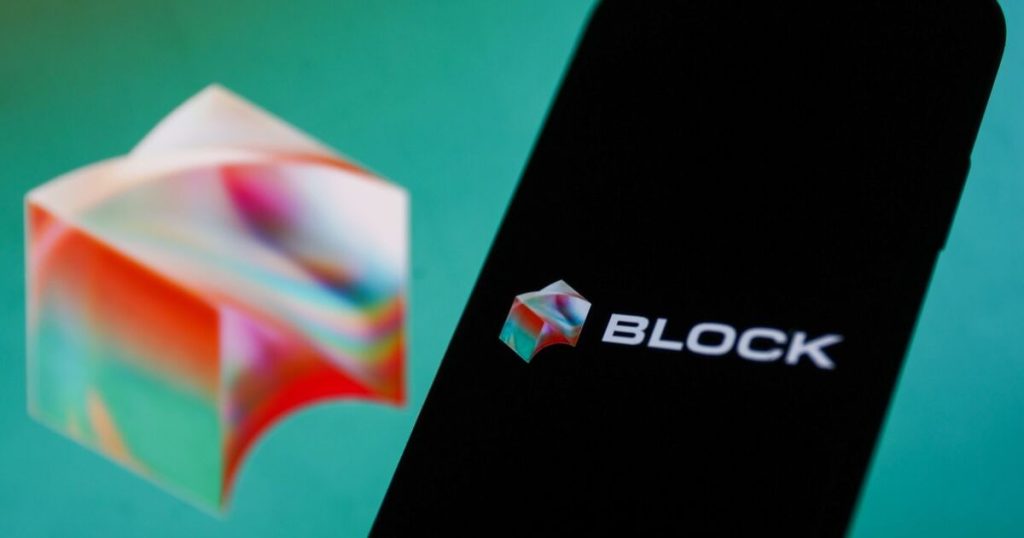Jakub Porzycki/NurPhoto/Photographer: Jakub Porzycki/Nur
Consumers spent less money on Cash App last quarter than Block had expected, causing a disappointing earnings report for the payments and commerce company.
“Our growth in the first half of this year does not meet our bar,” CEO Jack Dorsey said in his letter to shareholders.
Cash App gross profit came in at $1.38 billion, an increase of 10% year over year, but still below Block’s internal expectations. “We saw changes to consumer spending as the quarter progressed that we believe drove the majority of our forecast miss,” Dorsey said.
Specifically, Block saw a “pronounced shift in consumer behavior during the time period that we typically see the largest disbursements, late February and into March,” Amrita Ahuja, Block’s chief operating officer and chief financial officer, said during a call with investors Thursday night. Non-discretionary spending in grocery and gas was “more resilient,” she said, but
The banking and payments industry has been looking for signs of weakness in the economy among the publicly traded companies, zeroing in on
Block also missed analysts’ estimates in the first quarter. Revenue came in at $5.8 billion, a 3% uptick but below analysts estimates of $6.2 billion. Net income tallied $190 million, or 30 cents per diluted share, under analysts expected $314 million, or 48 cents per share.
Operating expenses increased 6% to just under $2 million.
Block reduced its guidance, reflecting a more “cautious stance” against the backdrop of a “dynamic macroeconomic environment,” according to the letter. Block expects 2025 gross profits to hit $9.96 billion, a 12% year-over-year growth. That’s down from its previous forecast of a 15% annual gross profit growth rate.
“Our gross profit guidance here reflects the view that what we saw in Cash App in the first quarter may be a sign of a changing macro backdrop,” Ahuja said on the call. “Given that uncertainty, we’ve embedded macro softening even beyond what we’ve seen so far more meaningfully into our growth outlook. We have not seen that materialized through April, but we thought this approach would be prudent given the wider error bars.”
Jefferies analyst Trevor Williams said in a research note to investors ahead of the conference call that he expected Block’s stock to be “under significant pressure” amid missed gross profit targets and revisions in guidance. “The miss [plus] guide cut on Cash App will overshadow what was a very strong Square quarter with a gross product beat,” he said of Block’s business unit, which retains the company’s original brand. Square’s GP was $898 million, a 9% increase.
Indeed, Block’s stock had fallen more than 18%, or $10.71, to $47.96 as of 6:15 p.m. in afterhours trading in New York Thursday following the call.
Block is still counting on Cash App to be a key driver of profitability in the latter half of the year and plans to capitalize on its recent approval from the Federal Deposit Insurance Corp. to issue short term consumer loans through its Square Financial Services lending subsidiary.
That approval doubled the addressable market for the lending product, called Cash App Borrow, because it can offer loans across more states, Ahuja said. It also provides better unit economics on the loans – which are short duration with a weighted average life of less than 30 days – because Block can originate and service the loans in house.
Block is also hoping that more Cash App customers take advantage of its post-purchase buy now/pay later offering Afterpay, which it
Dosey also said that returning the company’s focus to its network density will help grow gross profits.
“To be honest, I just don’t think we were focused enough and had enough attention on the network and the network density,” Dorsey said. “That is our foundation. That is our base. We, of course, want to deepen engagement with our customers through banking services and Borrow, … but at the same time, we need to make sure that we continuously grow our network.”
To that end, Block will be focusing on teens and families, which are Block’s “natural audience and one we believe is massively underserved,” Dorsey said.

